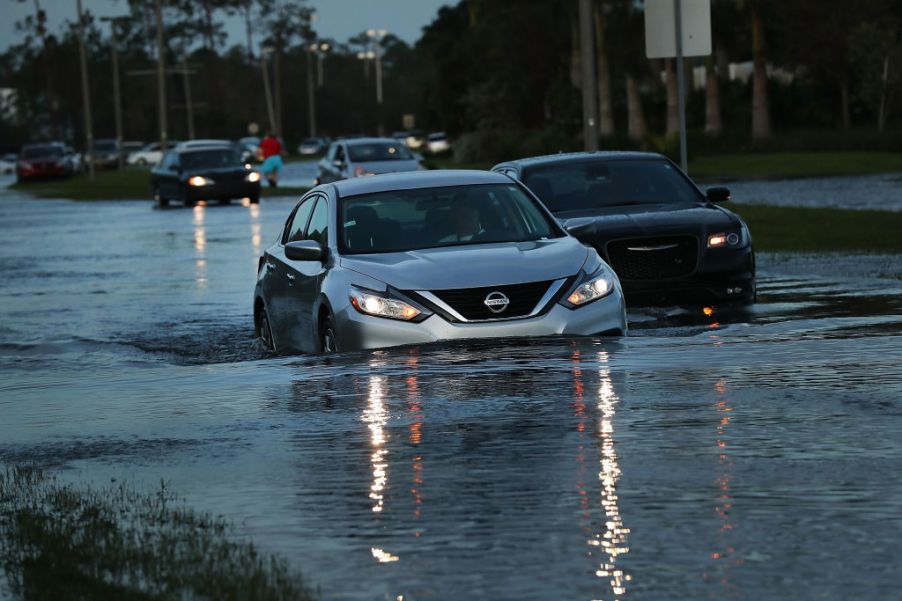
Flooded Roads Could Mean a Watery Grave for Your Car
If you live in a place that gets any amount of rainfall you’ve probably driven down a street that’s a little too watery for comfort. For the most part, many people will continue to drive down a road as long as the water isn’t absurdly high, but there are plenty of reasons you should think twice. Even if your car is high enough to handle the stagnant water that’s made a home on the pavement, that doesn’t necessarily mean you should risk your safety.
Sometimes it is worse than it looks
As we are driving we can’t always tell how deep water is going to be. On the surface, it might just look like a small film of rain that hasn’t drained off of the road yet, but even minor storms can leave several inches of rainwater on the road. This water is usually so cloudy that you can’t see to the bottom, and it can be difficult to gauge how deep the water is. A lot of drivers make the mistake of continuing forward regardless, oblivious to the dangers ahead.

Heavy rains can leave a lasting effect on roads, sometimes keeping areas flooded for days. Even of the road doesn’t have several inches of water, all it takes is a small accumulation of rain on the side of the road where the water hasn’t drained yet to cause an accident. Hyrdoplaning can occur when your car hits a small pool of water, and it can be terrifying as well as deadly.
Damaging your car
Truck drivers are typically less worried about the hazards of driving on wet roads because they are designed to tackle muddy terrain. This isn’t the case for all cars and SUVs, which can suffer from pretty severe damage in even an inch of water. When my mechanic warned me that my used Porsche Cayenne’s air intake was relatively low, I became concerned with hydro-locking my engine on my way home because my road is known to flood.

This is a problem many vehicles have that most owners aren’t aware of. Air intakes are designed to funnel water into your engine for the combustion process. When you are driving in normal rainy weather conditions there isn’t a concern for your motor’s wellbeing, but when you are splashing copious amounts of water into the intake you risk taking water into your engine and damaging it.
More dangers than one
According to Consumer Reports, there are some even scarier reasons why you should avoid wet roads. Many people will drive onto a road not realizing how deep the water is, and if you realized you do this, you should think twice. Water is conductive to electricity, and after a storm, a downed electrical pole can cause a significant and deadly hazard. You also can’t see what debris has been swept onto the roadway, or if there is any area of the road that has been corroded. You could drive safely through, sure, or you could hit a massive pothole and damage your car.

Driving through a watery road is a major hazard most people tend to ignore. Like potholes, it’s easy to forget how badly your car can be damaged in just a few moments. Even more concerning, these conditions put you and your loved ones at risk, and when it’s possible to take alternative routes, you should.


